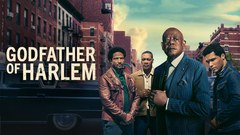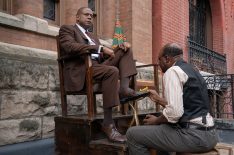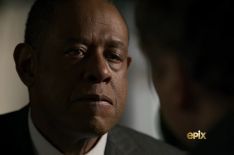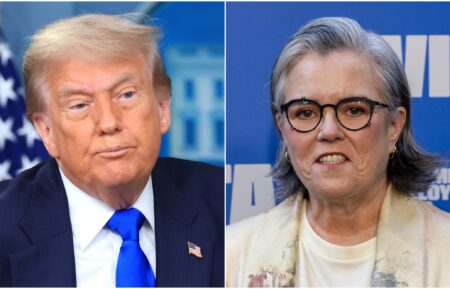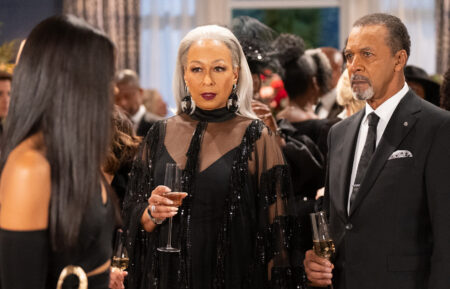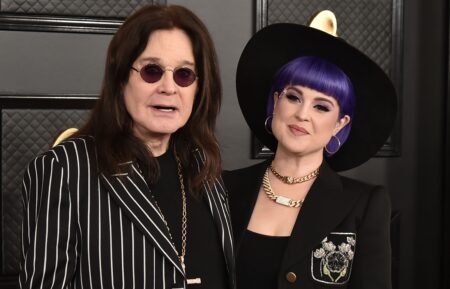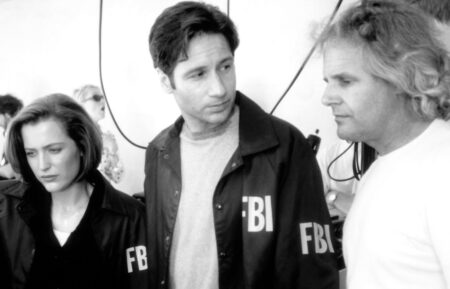‘Godfather of Harlem’ Cast Talks Race, Historical Accuracy & Politics
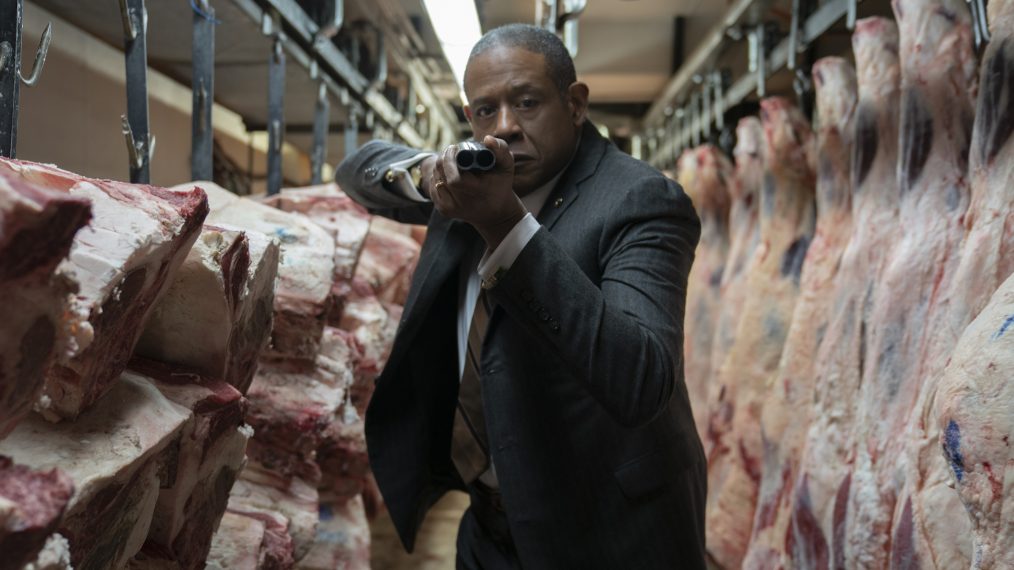
Preview
One of the most highly-anticipated shows premiering this season, Godfather of Harlem bridges the story of New York City’s legendary crime boss Bumpy Johnson with modern politics to create a powerful generation-spanning story of race, community, and power.
The latest series by Narcos showrunner Chris Brancato and Paul Eckstein, Godfather of Harlem premieres Sept. 29th on Epix.
Actor and executive producer Forest Whitaker portrays Bumpy Johnson, alongside Ilfenesh Hadera (She’s Gotta Have It) as his wife, Mayme, and Vincent D’Onofrio (Daredevil) as Italian mob boss Vincent ‘Chin’ Gigante. After Bumpy returns to Harlem from an eleven-year prison stint, he comes to terms with the changes in the neighborhood, including the Italian mafia territory shifts and the effects of the Civil Rights Movement.
Whitaker personally spearheaded the making of the show, working behind the scenes as a producer prior to bringing on showrunners Brancato and Eckstein. “It came to me as an idea originally about doing something about Bumpy Johnson,” Whitaker explains. “It was always about exploring this really complex man who was struggling with different sides of himself, of wanting to do something positive for the community and wanting to have legitimacy, but he’s this crime lord who is running Harlem.”
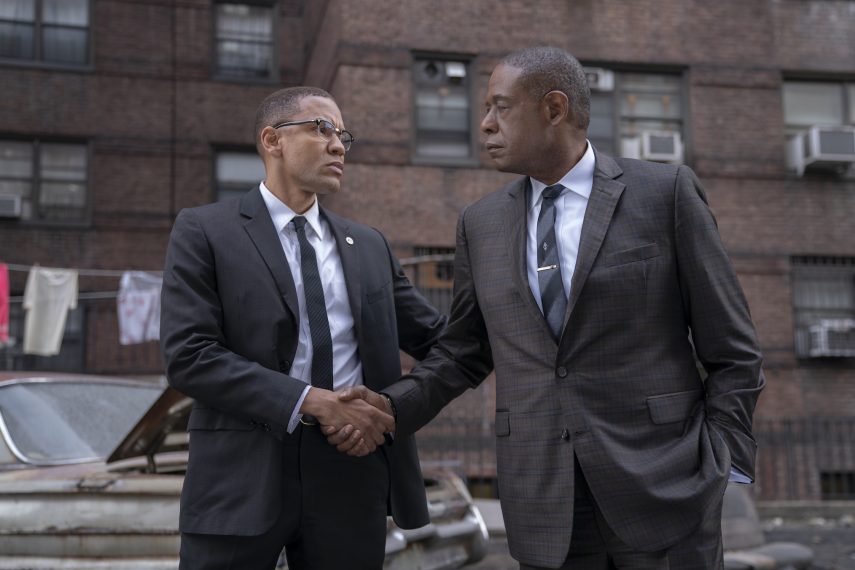
Nigél Thatch as Malcolm X and Forest Whitaker as Bumpy Johnson (Epix)
Whitaker tributes Nigél Thatch’s masterful way of bringing Malcolm X to life as a cornerstone of the historical setting of the show, especially Malcolm X’s real-life goal of working with community leaders to incite change. “For me as an actor, it was exciting to do these scenes [with Thatch] where I’m coming from the criminal perspective but I’m trying to take into consideration what it means to help the community, and he’s the spark that makes me think about it a lot. He becomes a conscience in a way, because he had this philosophy that if they could get the criminals that were running the communities to moving over to be the ones to help the communities, then they could fix everything. They had the social structures to be able to actually effectuate some kind of change in the communities, to be able to create protests and stuff.”
Whitaker’s Bumpy Johnson is portrayed more like a “businessman or banker,” as Whitaker says. Like Italian mob boss Chin, Bumpy is a leader, just with a different motivation. “This is like the Sixth Family, because I’m dealing with the Five Families of the mafia,” Whitaker laughs. “Our family is the Sixth Family and that’s what everybody gets to see.”
Bumpy’s own family life with wife Mayme is what drew Harlem native Hadera to the project. “It was like reading the best movie script I’ve ever gotten my hands on,” Hamera says of the pilot episode. “I felt a little possessive of this because it is my hometown, it’s my neighborhood. I felt the stakes were higher all around.”
Hadera read Mayme Johnson’s book, “Harlem Godfather,” in preparation for the role; in it, she soon discovered that she and Mayme had only a few degrees of separation through a former neighbor. “Ms. Cunningham lived on the 6th floor and let my brother and I raid her candy dish and crash in her apartment when my parents had to work late. She was Mayme and Bumpy’s wonderful friend,” Hadera explains. “Just reading stuff like that makes you think, ‘I know I’m made for this.’ It was wild.”
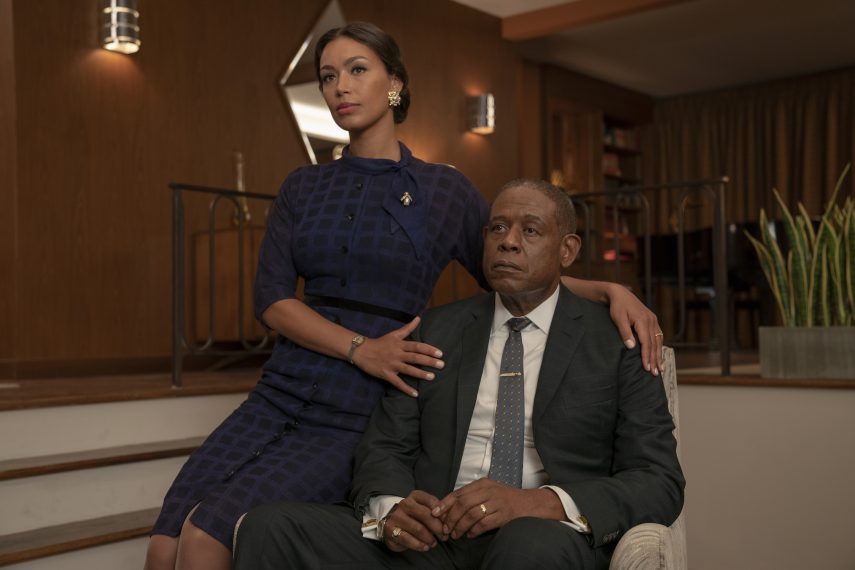
Ilfenesh Hadera as Mayme Johnson and Forest Whitaker as Bumpy Johnson (Epix)
Unlike more visible historical characters like Malcolm X and Reverend Adam Clayton Powell, as portrayed onscreen by Thatch and Giancarlo Esposito respectively, Mayme presented Hadera with an opportunity to create mannerisms and a certain style for her character, finding herself further personally intertwined with Mayme.
“She is someone who I really admire as a woman. She maneuvers with this real grace and ease even if things aren’t easy,” Hadera says. “In my own life I’d like to emulate that a little bit. When I’m having my little moments, I’m like, ‘what would Mayme do?’”
Upon husband Bumpy’s return from Alcatraz, Mayme copes with maintaining her family’s stable home amongst growing pressures. “She is just such a fierce mother and protector. She finally has this nuclear family that she’s always wanted and felt like she’s deserved, and then you have someone who could potentially blow it all for them,” Hadera hints.
While Bumpy is welcomed back by wife Mayme, his adversaries also wait in the wings. Mafia boss Chin (D’Onofrio) immediately clashes with Bumpy’s presence. “In real life [Bumpy] was kind of protected because he didn’t snitch on a bunch of different people when he was in prison,” D’Onofrio explains, citing Bumpy and Chin’s relationship. “Bumpy had a very strong following and that transcended into other gangs to an extent. But the biggest threat to [Chin] is the rise of the black community, and that’s when the racism comes in.”
D’Onofrio originally struggled to agree to portray Chin, speaking privately with his family and then asking fans on Twitter if the role was worth it. “I really didn’t want to do it because of the racism. I don’t like what’s going on in the world today with the white supremacy and what’s been rising up,” D’Onofrio says. “My wife and I decided that because of the relevance, it was probably a good idea.”
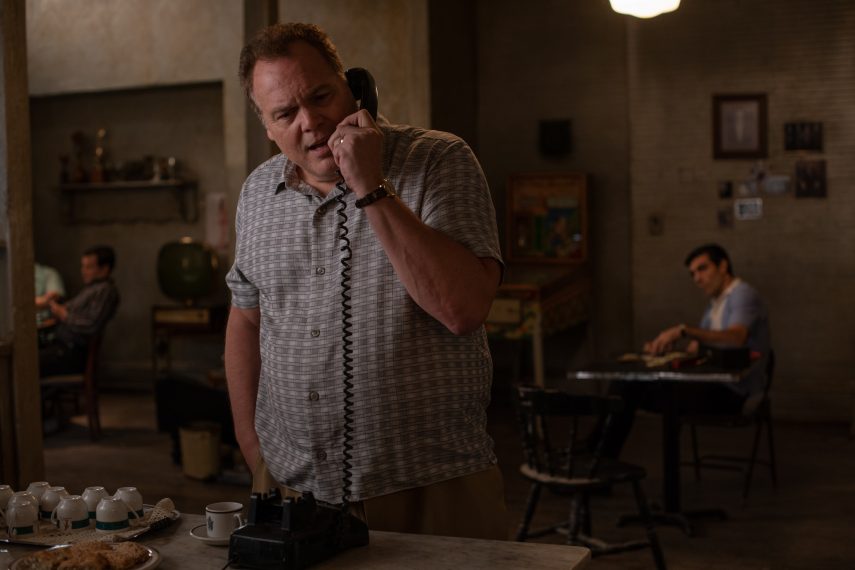
Vincent D’Onofrio as Vincent ‘Chin’ Gigante (Epix)
Showrunner Chris Brancato, a friend of D’Onofrio’s since working on the final season of Law and Order: Criminal Intent, also ultimately convinced D’Onofrio with the well-written script. “Some roles you just can’t [turn down], they’re written too well and they’re relevant in a way, and that’s why I’m here doing this one,” D’Onofrio says.
Although D’Onofrio frequently plays the villian, the role of Chin presented a new challenge: difficulty to empathize. “When he’s good, he’s good for all the wrong reasons and when he’s bad, he’s bad for all the wrong reasons. It’s a weird thing to be ok with.”
D’Onofrio credits costar and executive producer Forest Whitaker for being a masterful scene partner and easing his own tensions within portraying Chin. “You know that [Forest Whitaker] is going to do the right thing for his character. You know you’re not going to be in a shabby situation when he’s in something.”
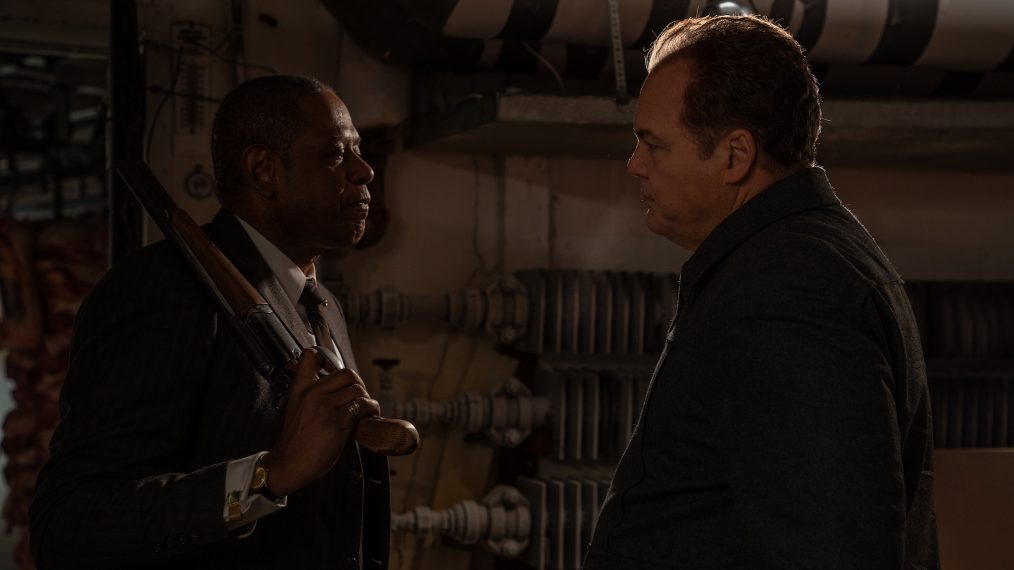
Forest Whitaker (left) and Vincent D’Onofrio (Epix)
The weight of the character did affect D’Onofrio, both on and off set, especially in this current cultural landscape. “There were days of doing certain scenes in the show that were very difficult to do,” D’Onofrio says. “I would leave with a knot in my stomach and then go home and turn on the news and see what’s going on in the world.”
Like D’Onofrio, Whitaker also believes the relevancy of Godfather of Harlem is striking in this current time– so much so in fact that Whitaker personally recruited music producer Swizz Beats to create original songs, bridging the 1963 scenes to modern day via hip hop, R&B, and rap. “The music was massive,” Whitaker explains. “It would set the frame for us as an audience to walk into the piece. You needed contemporary music to put a contemporary frame around the piece so that you could recognize the parallels in your own life.”
Much has changed in present day Harlem, some for the better and some for the worse. Hadera moved back to her childhood home two years ago, and feels the area has developed even greater diversity while still maintaining its identity and soul. “When we moved onto my parents’ block in 1992, my mom was the only white woman on the block. That’s strange to me in a city like New York,” Hadera says. “I think the inclination when you ask about change in any neighborhood is to go the negative way and talk about what it used to be, but the truth of the matter is that my neighborhood is more diverse than it’s ever been, and I think diversity is a great thing. I want to see people of all walks of life when I step outside my front door.”
Yet Godfather of Harlem doesn’t solely apply to Manhattan. The themes of culture clash, identity, and conflict are universal, and especially timely. Whitaker hopes the show will incite discussions about the issues portrayed: opioid addiction, police brutality, racial profiling. “I think it will make people have a dialogue,” Whitaker says, pointing to a scene with Malcolm X encountering the head of the Nazi party. “[The show] is dealing with too many issues that are relevant…this sort of polarization that is going on in the nation and have a chance to examine it just by listening to our characters and their words and their opinions on it.
“If anything, it makes people think that they need to stand up for their own rights. Hopefully this show will make people think it’s possible to create a change.”
Godfather of Harlem, Series Premiere,Sunday, September 29, 10/9c, Epix (timeslot premiere: Sunday, Oct. 6, 9/8c)
